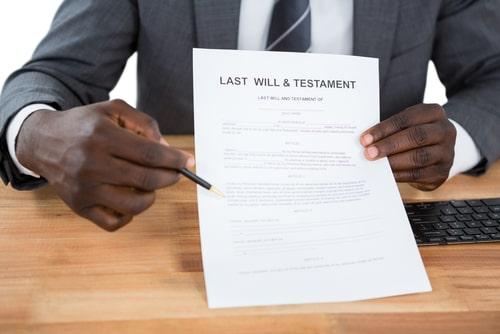With Trusts Becoming More Common, Who Still Needs a Will?
 If you have started to look into estate planning a bit, you have probably read over and over that trusts are rapidly becoming the preferred means of testamentary transfer. Certainly, there are numerous benefits of using a trust over a will. Using a trust can allow your beneficiaries to skip a lengthy and costly probate process. It also keeps the handling of your estate private rather than public, reducing the odds of a contest. And, you can use a trust to make controlled distributions over time instead of giving someone - especially a very young adult - one lump sum.
If you have started to look into estate planning a bit, you have probably read over and over that trusts are rapidly becoming the preferred means of testamentary transfer. Certainly, there are numerous benefits of using a trust over a will. Using a trust can allow your beneficiaries to skip a lengthy and costly probate process. It also keeps the handling of your estate private rather than public, reducing the odds of a contest. And, you can use a trust to make controlled distributions over time instead of giving someone - especially a very young adult - one lump sum.
With all of this in mind, you might wonder why anyone at all still bothers with making a will. There are certain situations in which it is wise to use a will in addition to a trust. Wills are still useful in modern estate planning for many, as they can sometimes accomplish goals that a trust cannot.
When Should I Use a Will?
In any of the following situations apply to you, you may need a will, even if you are primarily using trusts:
- Minor children - If you are a parent or guardian of minor children, then there is a very good reason you should use a will in addition to a trust. A trust allows you to appoint a trustee to manage money and property you want to be used for the benefit of the children. However, you cannot use a trust to appoint a successor guardian, the person you would want to actually take in and raise your children in the event that they are left without a living parent. To do this, you will need to use a will. While the court is not bound by your selection and will do what it believes is in the children’s best interest, courts do often defer to a parent’s wishes stated in the will.
- Large estates - The larger the estate or the more varied the types of property you own, the more likely it is that something you own was inadvertently left out of your trust. Anything that did not end up in your trust cannot be controlled by it. The most common solution to this is called a “pour-over will.” A pour-over will simply leaves anything you own that is not already in the trust to the trust.
- Funeral wishes - If you have specific wishes about what you would want your funeral to look like or how you would like your remains to be handled, you will generally want to leave these instructions in a will rather than a trust. While these terms are not legally binding, putting your wishes into a legal document can increase the chances that your loved ones will respect them.
These are just a few circumstances under which you may want to include a will in your estate plan.
Get in Touch With a Texas Estate Planning Attorney
If you are ready to begin estate planning, Geoff Mayfield, Attorney at Law is waiting to help. Our experienced Bexar County estate planning lawyers will help you determine what documents you need in your comprehensive estate plan. Call 210-535-0870 for a free consultation.
Source:
https://statutes.capitol.texas.gov/Docs/ES/htm/ES.1104.htm

 8531 N. New Braunfels Ave, Suite 100, San Antonio, TX 78217
8531 N. New Braunfels Ave, Suite 100, San Antonio, TX 78217 210-535-0870
210-535-0870




